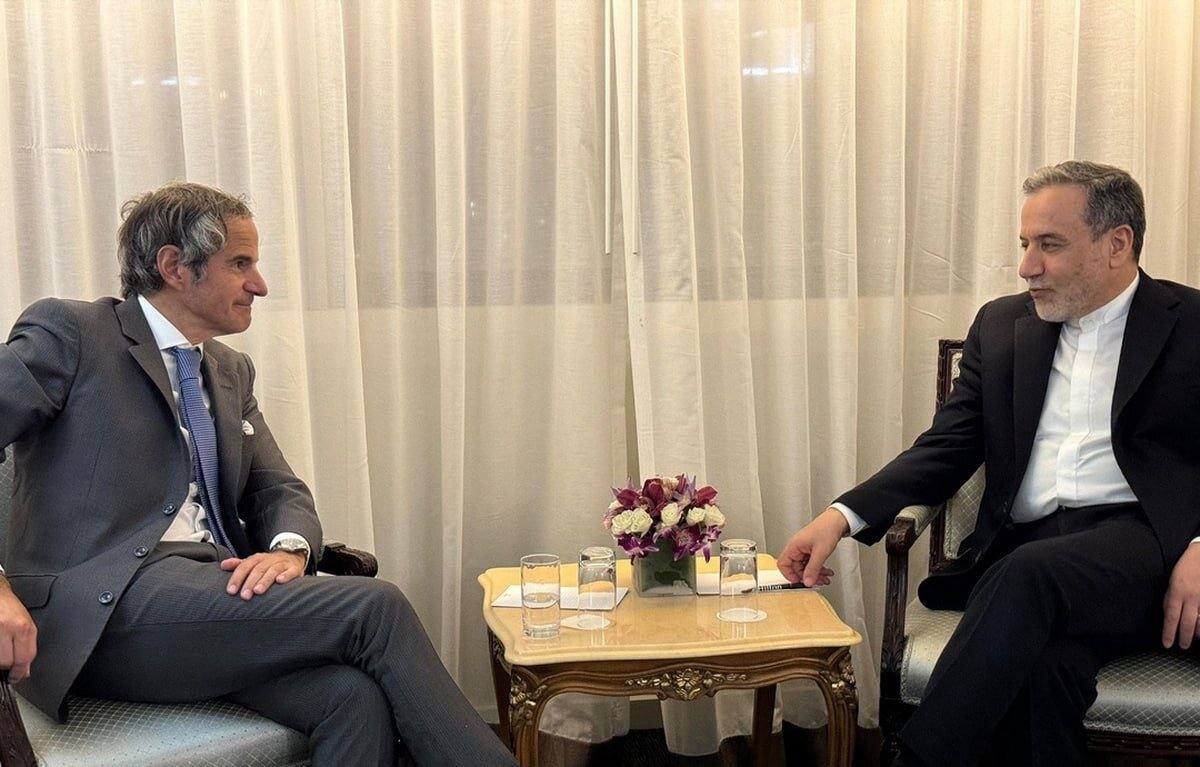TEHRAN – Iranian Foreign Minister Abbas Araghchi said on Thursday that his country is ready for talks with the European trio of Britain, France and Germany and the European Union as a whole on its nuclear program based on the Islamic Republic’s “national interests” and “inalienable rights”.
“The ball is in the EU/E3 court. Willing to negotiate based on our national interest & our inalienable rights, but NOT ready to negotiate under pressure and intimidation,” the foreign minister wrote on his X account after holding “important and straightforward” talks with International Atomic Energy Agency director general Rafael Grossi in Tehran on Thursday morning.
Araghchi, who was among the chief negotiators in crafting the 2015 nuclear deal between between Iran and major powers, insisted that Iran will continue to fully cooperate with the UN nuclear watchdog as a party to the nuclear Non-Proliferation Treaty (NPT).
The foreign minister added, “Differences can be resolved through cooperation and dialogue. We agreed to proceed with courage and good will.”
The foreign minister also said Iran has never left the negotiating table over its nuclear program.
The foreign minister also left the door open for the West to right the wrongs, writing that the “differences can be resolved through cooperation and dialogue.”
On his talks with the IAEA chief, Araghchi said, “We agreed to proceed with courage and good will.”
The foreign minister also said Iran has never left the negotiating table over its nuclear program.
“We hope that the West will adopt a wise policy”
Speaking to IRNA and IRIB after his talks with Grossi, Araghchi warned that confrontation will not benefit any side.
“Confrontation is not beneficial for either side. The path of cooperation must be taken, and we are ready to cooperate. We hope that the opposite sides will also adopt a wise policy,” the Iranian foreign minister remarked, Press TV reported.
He reiterated that Iran is ready to cooperate with the IAEA only if the other side fulfills its obligations under the nuclear agreement.
Based the nuclear agreement, officially known as the Joint Comprehensive Plan of Action, Iran agreed to put limits on its nuclear activities in exchange for the termination of economic and financial sanctions. However, Donald Trump who was president from 2017 to 2021, withdrew the U.S. from the agreement and reintroduced sanctions in line with his “maximum pressure” policy against Iran. This happened despite the fact that the IAEA confirmed in its regular reports that Iran was fully loyal to its commitments for a full year.
After the U.S. quit the deal, the European sides also did not honor their commitments. This inaction by the Europeans prompted Tehran to gradually lift the limits on its nuclear program.
Araghchi, who described his talks with Grossi as “good and constructive”, also said they set the stage for cooperation between Iran and the IAEA for the next year in their Thursday talks.
Noting that the negotiations are intended to ease tensions, he expressed hope the JCPOA parties would find a wise solution to the problems “before the situation gets worse.”
He added, “Since we are confident about our peaceful nuclear program, we have no problem cooperating with the Agency and are ready to continue our cooperation,” he said, Press TV reported.
